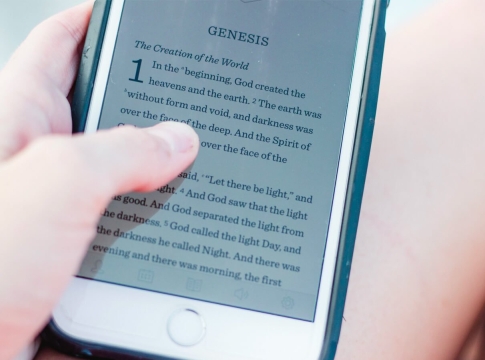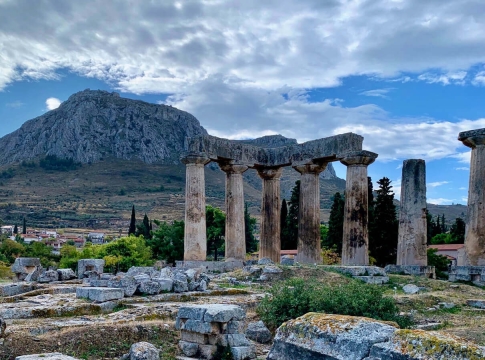
Most people refer to the author of the Gospel of Luke and the book of Acts as Luke. Although the author of this book doesn’t explicitly say so, it was widely believed by the early church to have been written by a man by the name of Luke, who traveled with Paul on some of the missionary trips that are chronicled in the book of Acts. In his epistle to the Colossians, Paul writes of him (Colossians 4:14). Here, we also discover that Luke was a doctor.
The unfolding plan of God
One of the things which Luke is very interested in is to portray the Gospel as the unfolding of God’s plan. For example, Luke writes down how Jesus says to his disciples after his resurrection: “Thus it is written, that the Christ should suffer and on the third day rise from the dead, and that repentance and forgiveness of sins should be proclaimed in his name to all nations, beginning from Jerusalem….” (Luke 24:46-47). Luke emphasizes the history and the plan of God. We read at the beginning of his gospel how Luke “followed all things closely for some time past” and wrote his Gospel with the intention to show Theophilus “the things that have been accomplished among us” (Luke 1:1-4). Thus we see the picture of the history of the world where the mighty emperor Caesar Augustus decrees that all the world should be registered, the way in which Christ is born in Bethlehem (Luke 2:1-7), while the book of Acts ends with the fact that the apostle Paul is in Rome, the capital city of the Roman Empire, “proclaiming the kingdom of God and teaching about the Lord Jesus Christ with all boldness and without hindrance” (Acts 28:31). So who is the real king in the end?
Work of the Holy Spirit
Next to the history of God’s salvation, Luke is also the Gospel writer who writes a lot about the work of the Holy Spirit. In Luke 1-2 we see how the Holy Spirit leads people so that they do the will of God. John the Baptist will be filled with the Holy Spirit (Luke 1:15), the Holy Spirit comes upon Mary so that she conceives (Luke 1:35), Elizabeth is filled with the Holy Spirit and encourages Mary (Luke 1:41). Zechariah is filled with the Spirit (1:67), the Spirit is upon Simon and has given him a promise and guides him to the temple (2:25-27). John the Baptist promises that the one who will come after him will baptize with the Holy Spirit and fire (3:16) and this we see happen throughout the book of Acts (starting with the day of Pentecost (Acts 2)).
The compassion of Jesus
Luke demonstrates Jesus’ empathy for the outcasts, including the underprivileged, women, and non-Jews. Just one instance of each is seen in Luke 16:19–31, when the rich man goes to hell and the poor man goes to heaven in the story of Lazarus and the rich man. The women who followed Jesus are described by Luke (Luke 8:1-3). According to Luke, Jesus uses a Samaritan—one of the Jews’ deadliest adversaries at the time—as an example of what it means to love your neighbor in the parable of the good Samaritan (Luke 10:25–37).
How God is in charge
In summary, God teaches us how He controls world history through Luke. In addition to achieving reconciliation through His sacrifice, Jesus obtained for us the indwelling of the Holy Spirit, who guides us in bearing witness to and obeying Him. God seeks out the outcasts and unites them in his kingdom, which is Jesus’ kingdom. While this message cautions those who believe they are important and wealthy to be rich in God instead (Luke 12:13–21), the kingdom is theirs (Luke 6:20–23).
Read more in What is the Bible?





